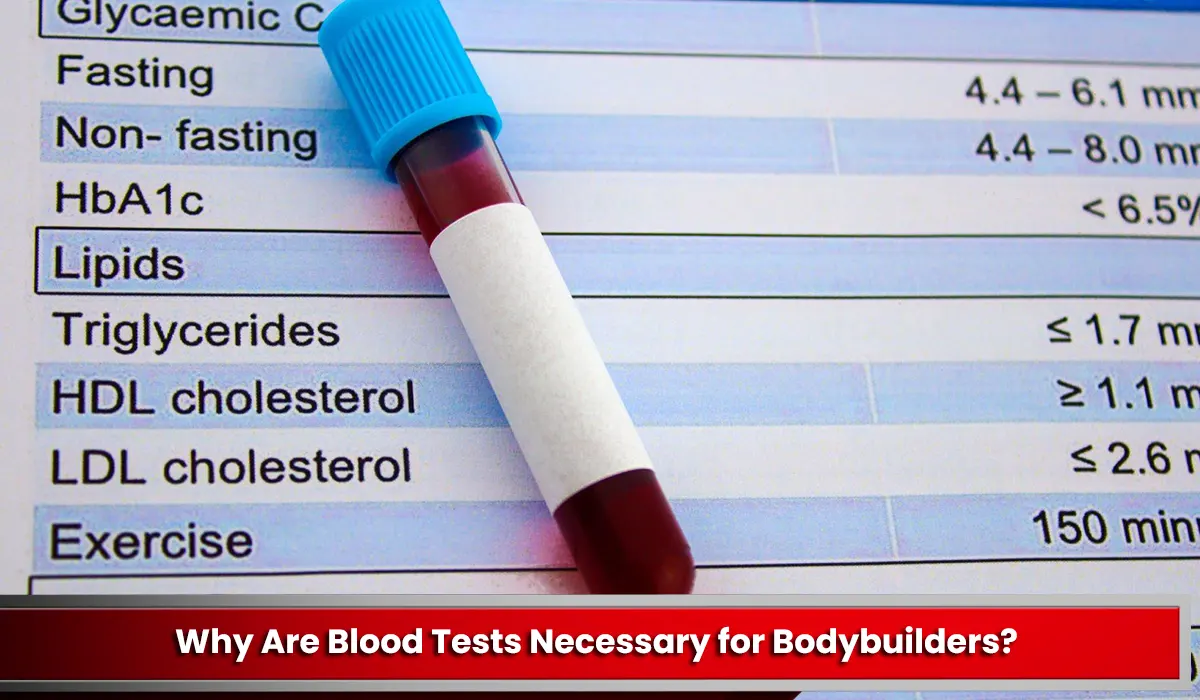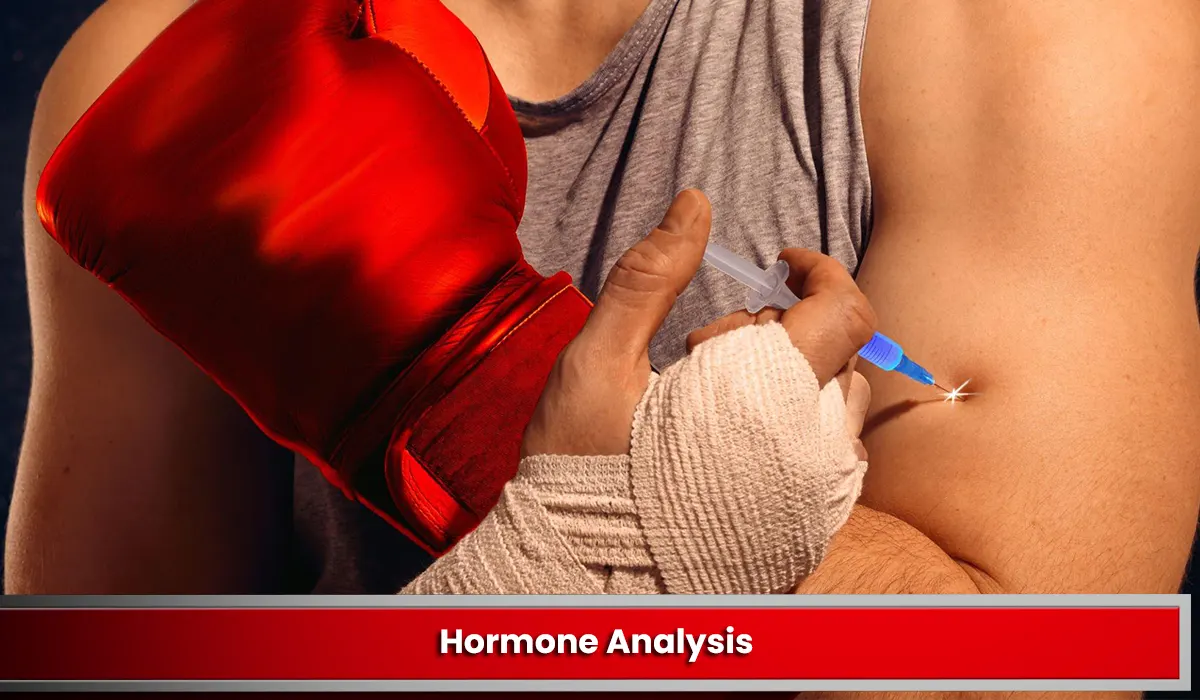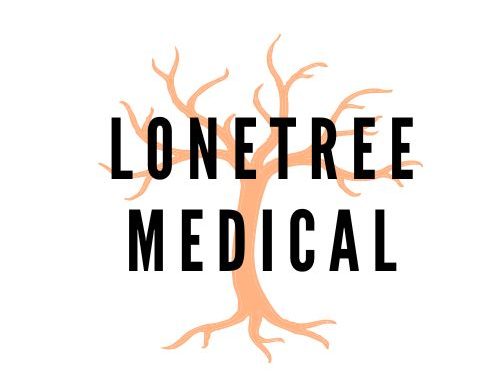Bodybuilding and other physical sports demand more than just rigorous training. Because the amount of work required in these professions will push your body to its limits, you should consider routine health monitoring at all times.
That is why bloodwork for bodybuilding is advised before and during specific periods of activity. Blood tests are also necessary, especially if you use nutritional supplements.
Nonetheless, doctors routinely recommend specific blood tests because this type of labor and supplementation is prevalent in bodybuilding and sports training. If you are or want to be a bodybuilder, this is the place to learn about the lord gym bodybuilding blood work you will need.
Bodybuilding Blood Works
Bodybuilders’ blood tests should include the CBC, CMP-14, cortisol, reproductive hormones, insulin, and thyroid hormones.
Your doctor may order further blood tests based on your cabergoline for bodybuilding health condition or if you have an existing sickness or infection.
Why Are Blood Tests Necessary for Bodybuilders?

Professional bodybuilders and athletes must have annual health consultations and exams, as well as the aforementioned blood tests.
If you have health problems that require treatment, the frequency of your doctor’s appointments may increase.
Indeed, the health screening required for bodybuilding can be more stringent steroids before and after than for other less physically demanding sports.
It does, however, imply that if you begin hard training, such as resistance workouts and strength-building activities, your body will endure major changes.
Developing thinner muscles and lower body fats can cause damage to your muscular tissues, which may lead to inflammation and an imbalance in enzyme and hormone synthesis. It is aggravated further by the usage of steroids and the administration of testosterone replacement therapy (TRT).
In research over the years, anabolic steroid use has been related to ailments such as myocardial infarction and cancer. As a result, anyone who uses steroids to improve their physique, even if they do not compete in bodybuilding, should have bloodwork done.
If the changes in the body generated by these actions are not monitored, you could wind up jeopardizing your entire health. Furthermore, if you overdo the workouts and supplements, unfavorable results may arise.
3 Types of Blood Tests Bodybuilders Need to Take
Complete Blood Count (CBC)
A typical exam usually includes a complete blood count (CBC). It is used to assess your blood cells (red blood cells, white blood cells, and platelets).
Your CBC results will disclose a great deal about your health.
It is used to screen for, diagnose, and monitor a variety of disorders affecting your blood cells.
Normal count reference ranges exist for sustanon 250 side effects each component of your blood.
Increased white blood cells (WBCs), for example, may indicate infection.
Anemia can be caused by a lack of red blood cells (RBCs).
CBC, on the other hand, gives baseline information about your overall health. Furthermore, it identifies any health issues that may interfere with your bodybuilding exercise and food requirements.
Comprehensive Metabolic Panel 14 (CMP 14)
A comprehensive metabolic panel is performed to assess your metabolism and provide an overview of your body’s chemistry. It comprises of 14 tests designed to evaluate important organs and bodily fluids.
Protein levels, serum glucose levels, electrolytes, blood urea nitrogen (BUN), creatinine, calcium, bilirubin, sodium, chloride, and potassium levels can all be determined with CMP.
These chemicals should be present in amounts lower than the normal reference range. Otherwise, it may cause you to be concerned about your health.
If you’re taking medicines or supplements like anabolic steroids, CMP is especially crucial because it determines whether these substances are causing liver and kidney damage.
Hormone Analysis

Hormones play a significant influence in bodybuilding. Anabolic hormones, for example, have been shown to promote muscle growth. Catabolic hormones, on the other hand, are likely to obstruct the process.
As a result, having more anabolic hormones than catabolic hormones in your blood makes sense. So, below is a list of hormones that promote either anabolism or catabolism.
Anabolic hormones
- Growth hormone
- Testosterone
- Insulin
- Insulin-like growth factors
Catabolic Hormones
- Cortisol
- Glucagon
- Epinephrine
For Male bodybuilders
The testosterone levels of male bodybuilders are often a subject of concern.
Because male bodybuilders would want more testosterone, pharmaceuticals were frequently employed in the practice.
Steroids are synthetic versions of testosterone. This hormone, which is mostly produced by the testes, promotes male features such as muscle growth.
Those who supplement their resistance and strength training with steroids or TRT should experience noticeable bulking.
If this is not the case, you should get your testosterone levels checked with a blood test to rule out any potential issues, such as liver or thyroid disease.
For Female Bodybuilders
Estrogen and progesterone, which are used by women, may not have the same effect as testosterone. Female bodybuilders, on the other hand, must maintain a healthy balance in order to get their desired physique.
Estrogen, for example, can increase muscle growth and create collagen in connective tissues.
A high estrogen level, according to a study conducted by the University of California, Davis, can diminish women’s strength and performance and raise their risk of injury.
Progesterone, unlike estrogen, can stimulate the production of muscle proteins. As a result, the process is almost identical to testosterone injection.
Other hormones, such as follicle-stimulating hormone (FSH) and luteinizing hormone (LH), are examined if there is a major imbalance in estrogen and progesterone.
These two hormones are produced by the brain. FSH is in charge of estrogen secretion, while LH is in charge of progesterone secretion.
General Hormone Testing
Blood tests are used to assess various chemicals in the body
Insulin levels, for example, are regularly examined since some bodybuilders use this hormone to boost performance and avoid breakdown when constructing muscle fibers.
The opposite consequences occur with glucagon.
Uncontrolled insulin use can result in serious problems.
Thyroid hormones, such as triiodothyronine, are another group of hormones that are being studied for bodybuilders (T3). Hormone-stimulating medicines, such as thyroid-stimulating hormone, are also included.
When bodybuilding, your thyroid gland should be in good health because it is essential for metabolism and muscle growth.
Hormone testing related to their functions can provide valuable information about their condition.
In Conclusion
Blood tests should be performed at least once a year for bodybuilders.
The bodybuilding process provides a variety of health benefits, which can only be strengthened with consistent monitoring.
Have a Bodybuilder Profile Blood Test before beginning your tough workout. The important lab testing for bodybuilders is already included in this collection of tests.
Cortisol, insulin, T3, TPO antibodies, TSH, LH, FSH, and sex steroids testosterone, progesterone, and estradiol tests are all possible. All of the required bodybuilding tests are combined into one. You only need to request the blood test and you’re done.

